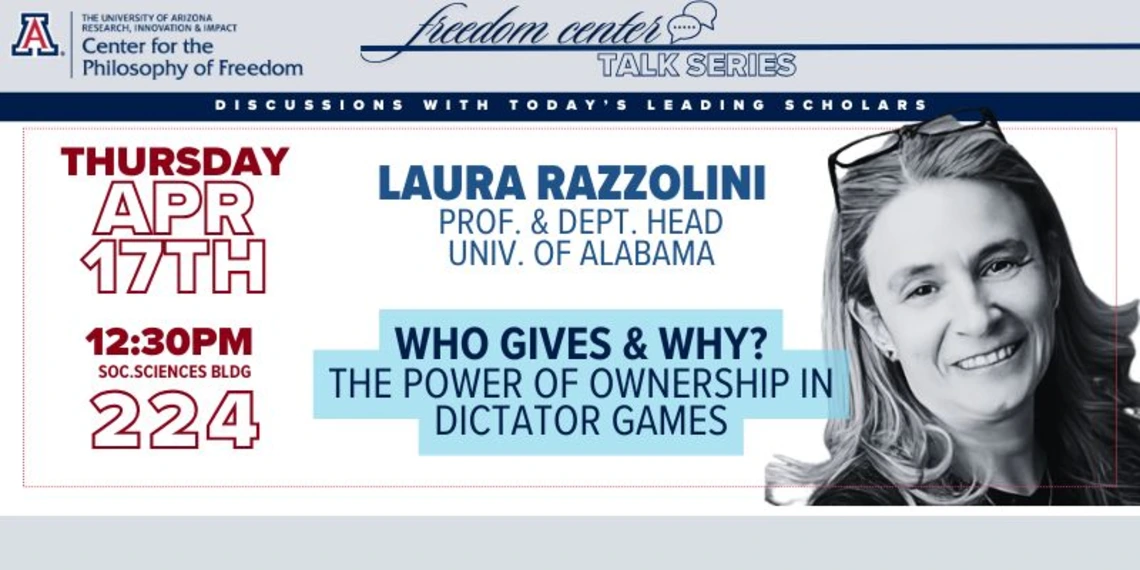
When
Join us for an engaging talk by Laura Razzolini. This event will take place in SBS 224 from 12:30 PM to 1:30 PM. Don’t miss this opportunity to gain valuable insights and participate in a stimulating discussion!
Who Gives and Why? The Power of Ownership in Dictator Games
Bio
Laura Razzolini is Professor of Economics and Department Head at the University of Alabama. Her research specializes in public and behavioral economics. She conducts economic experiments in a laboratory setting to test predictions of the theoretical models. Her work on altruism, fundraising and cost sharing mechanisms, traffic congestions and terrorism has been funded by the National Science Foundation. Her research has been published in the Journal of Economic Theory, Journal of Public Economics, Economic Theory, Public Choice, and Experimental Economics. For 16 years she served as Editor in chief of the Southern Economic Journal. She currently serve as Vice President of the Southern Economic Association and on the Executive Committee of the Economic Science Association.
Abstract
Economists and psychologists use Dictator games to test theories of social preferences, but economists often don’t ask the deeper question—”why” do people give? That’s where psychology comes in, examining the emotional and cognitive factors behind generosity. I’ll discuss experiments that test how ownership perceptions affect giving. In one version, the dictator earns and controls the endowment (Earn-Give). In another version, the recipient earns it (Earn-Take). Previous research by List (2007) found that recipients fare better when the experimenter bestows the dictator with an endowment rather than when the dictator earns it, suggesting that earned ownership reduces generosity. Similarly, studies by Korenok, Millner, and Razzolini (2011, 2013) show that recipients fare better in a taking frame rather than a giving frame, reinforcing the idea that perceived ownership influences giving behavior. Using questionnaires to measure affect and ownership, we find that giving is highest when dictators feel the least sense of ownership over the money. These findings offer practical insights into how philanthropic organizations might encourage greater generosity.
Can’t make it in person?

